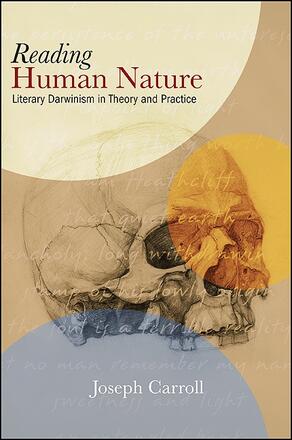
Reading Human Nature
Literary Darwinism in Theory and Practice
Alternative formats available from:
Showcases the latest developments in literary Darwinism, a powerful approach that integrates evolutionary social science with literary humanism.
Description
As the founder and leading practitioner of "literary Darwinism," Joseph Carroll remains at the forefront of a major movement in literary studies. Signaling key new developments in this approach, Reading Human Nature contains trenchant theoretical essays, innovative empirical research, sweeping surveys of intellectual history, and sophisticated interpretations of specific literary works, including The Picture of Dorian Gray, Wuthering Heights, The Mayor of Casterbridge, and Hamlet. Evolutionists in the social sciences have succeeded in delineating basic motives but have given far too little attention to the imagination. Carroll makes a compelling case that literary Darwinism is not just another "school" or movement in literary theory. It is the moving force in a fundamental paradigm change in the humanities—a revolution. Psychologists and anthropologists have provided massive evidence that human motives and emotions are rooted in human biology. Since motives and emotions enter into all the products of a human imagination, humanists now urgently need to assimilate a modern scientific understanding of "human nature. " Integrating evolutionary social science with literary humanism, Carroll offers a more complete and adequate understanding of human nature.
Joseph Carroll is Curators' Professor of English at the University of Missouri–St. Louis and coeditor (with Alice Andrews) of the journal The Evolutionary Review, also published by SUNY Press. His books include Evolution and Literary Theory and Literary Darwinism: Evolution, Human Nature, and Literature. He has produced an edition of On the Origin of Species. He is coeditor (with Brian Boyd and Jonathan Gottschall) of Evolution, Literature, and Film: A Reader.
Reviews
"[Carroll] is an unapologetic and powerful defender of literary Darwinism, and more generally a scientific approach to all things human. Part of his project is a critique of recent trends in literary criticism that seek to devalue science, deny biological human nature, and give priority to language and discourse. It is here that his expertise will be most valuable to the readers who are not fully immersed in the twists and turns of recent literary theory. " — Quarterly Review of Biology
"Carroll … makes a strong argument for literary Darwinism as a revolutionary force in humanistic studies … Carroll argues convincingly for the shift from speculative theories to an evolutionist's perspective grounded in 'an empirically based model of human nature,' a shift that will enable generation of new and relevant knowledge. " — CHOICE
"An important accomplishment by one of the leading scholars in the field of evolutionary studies. The book brings together some of Carroll's best work to date and is the most current statement available regarding the new evolutionary thinking about culture. " — Michael Ryan, coeditor of Literary Theory: An Anthology
"A major summa from a major theorist. In Reading Human Nature, Joseph Carroll revisits the subdiscipline he founded: evolutionary literary studies. Analytical and empirical, this diverse body of analyses reaffirms central humanist ideas, including individual identity, authorial intentions, and reference to the outside world. Literary scholars, critics, and theorists: ignore this book at your peril. " — Peter Swirski, author of Literature, Analytically Speaking: Explorations in the Theory of Interpretation, Analytic Aesthetics, and Evolution